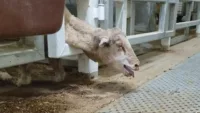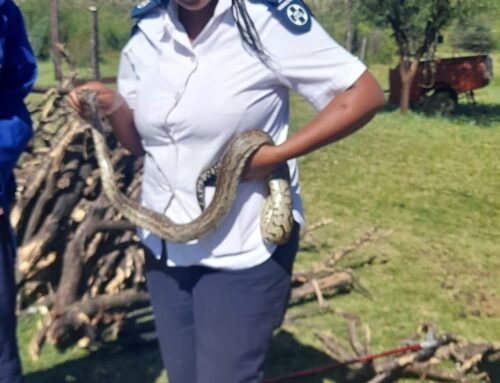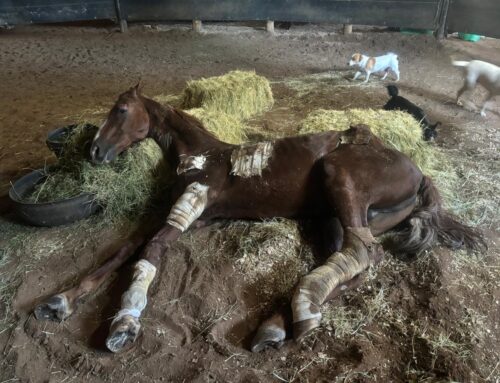Many of the animals onboard live export vessels do not survive the journey by sea, and those that do survive are subjected to cruel living conditions for the duration of the trip. The inhumanity displayed in the practice of the exporting of live animals by sea is often marked by disease, overheating, overcrowding, dehydration, starvation, physical trauma and people who don’t care about the welfare of animals. Such conditions, are for any sentient being, unliveable.
The NSPCA has been in and out of Court fighting to ban the live export of sheep by sea since 2019. The battle was separated into two parts, namely Part A and Part B:
Part A:
The NSPCA sought to prevent Al Mawashi (South Africa’s largest exporter of sheep) from exporting any sheep from South Africa to the Middle East until Part B of the application was heard in court. The NSPCA was granted an interim interdict to prevent Al Mawashi from exporting until Part A was heard before the court. Part A was then argued before the late Acting Judge Dukada, who made an order that allowed the shipment to proceed, subject to certain conditions.
Part B:
The NSPCA seeks to gain a complete ban against live sheep exports from South Africa. This continuous legal battle is being executed at the highest level, with the aim of banning the live export of sheep by sea entirely.
Since 2019, a total of 243 541 sheep have been exported by Al Mawashi to the Middle East. The NSPCA has received confirmation of Al Mawashi intending to return next month, July 2023, to export 53 000 animals to face a brutal death: either en route or, should they survive this merciless journey, slaughter whilst fully conscious.
Throughout their three-week trip, during one of the hottest summer months in the Middle East, our sheep will be subjected to entirely unnatural conditions onboard the ship. The sheep will endure stress, heat exhaustion, sea sickness, infections, illnesses, high ammonia levels leading to respiratory and ocular infections, overcrowding and physical injuries. The most vulnerable, such as new-born lambs and weaker sheep, are often trampled and crushed, or cannot reach food and water. During the entire voyage, their excrement will not be removed, and they will live in a build up of their own urine and faeces.
The NSPCA does not condone live export. However, until we have achieved a complete ban, like other countries such New Zealand, the NSPCA will continue to monitor live export processes in an attempt to protect as many animals from suffering as possible. The NSPCA is assembling a team and allocating resources to intervene and conduct inspections at the feedlot and harbour. Our Inspectors will ensure that any sick, injured, or compromised sheep are not loaded onto the ship.
While confronting and working towards the prohibition of this barbaric trade, we ask for your support. Your donation will directly benefit animal welfare, as any financial contributions will be used to assist our team in carrying out their duties throughout this battle.
Donate to the NSPCA
If you are as passionate about animals and their well-being as we are, consider supporting our causes by donating here.








